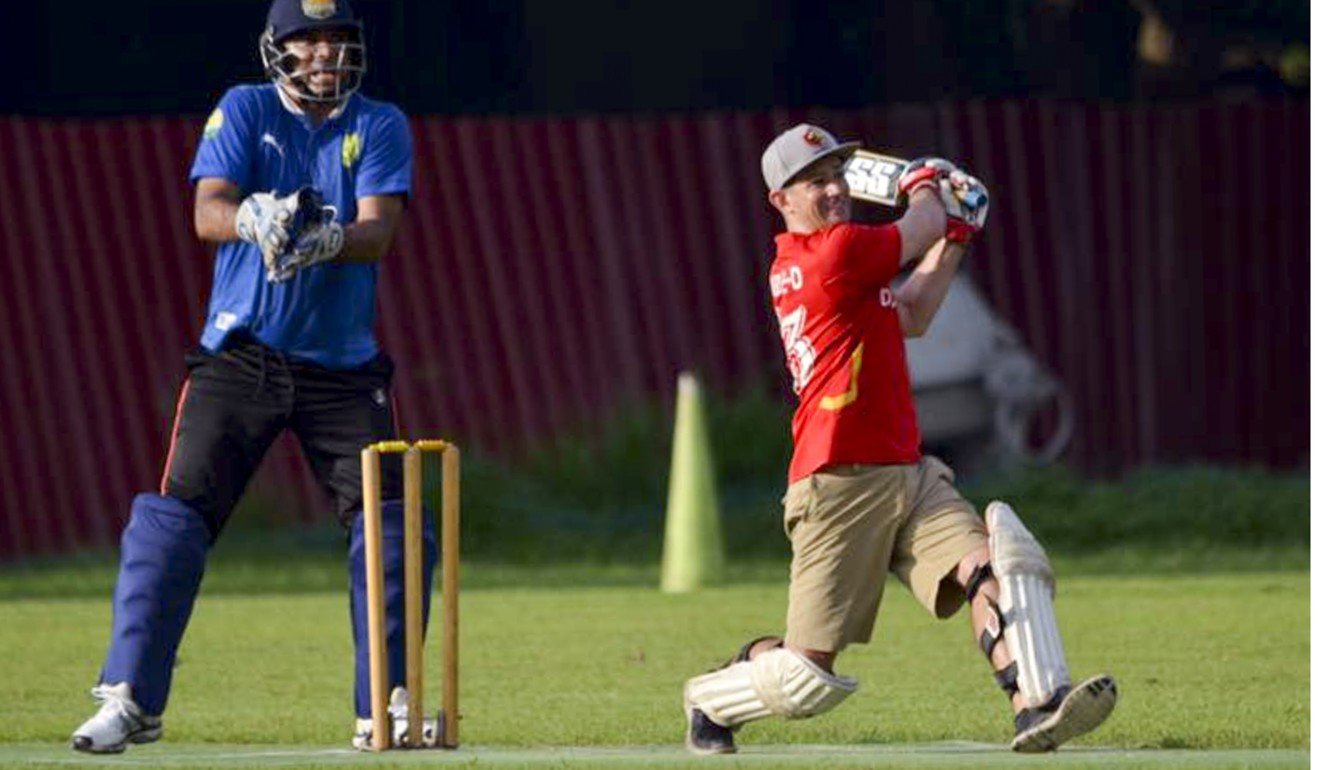
The English cricket fan padding up for first-class fun on China’s sticky wickets
Simon Ashmore has loved the sport since he was a schoolboy in England. Now he’s trying to promote its social side as part of the Beijing Ducks Cricket Club

If you had told Simon Ashmore 20 years ago that he would someday form a cricket team in Beijing, the then eight-year-old schoolboy in England would have suggested, very politely, that you were out of your mind.
“I would have said it’s not possible,” the co-founder of the Beijing Ducks Cricket Club said.
But a barroom get-together with a close cricket friend in China’s capital a couple of years ago changed what once was thought to be impossible into reality.
It was early 2016. Ashmore and his friend Thomas Ashton, a fellow amateur cricketer and expat from Christchurch, New Zealand, were in a Beijing bar, shooting the breeze as they often did during the long and chilly winters.
At one point the conversation turned to next summer’s plans.
“We wanted to form a team,” Ashmore, 38, said. What they had in mind was a cricket team that would emphasise the sport’s strong social component.
“Cricket is very social sport,” Ashmore said. “You meet lots of people and you become friends with them and you stay friends with them for probably the rest of your life.”
And so, the Beijing Ducks Cricket Club was born.
The Ducks – consisting of 30 regular players, mostly expats living and working in Beijing – are the newest member of Beijing Cricket Club, which operates competitive cricket matches in the city.
The Ducks play in the Twenty20 league – which showcases short matches on weekends. The newcomers wasted no time putting their stamp on the organisation, winning the 2016 Nanjing Sixes tournament in their league debut.

The team’s philosophy, Ashmore said, was “be social, have fun and make a friend”.
“We meet once a week, watch cricket on the TV, have some food and drinks,” he said. “We practise, and we play in the league.”
Moving from player to team founder was a natural step for Ashmore, considering how the game has been an important part of his life since childhood.
Brought up in Burton upon Trent, a town on the River Trent in central England, Ashmore learned how to play the bat-and-ball game in his grandfather’s garden when he was just eight years old.
The sport continued to hold a special place in his heart throughout his student days and when he later joined a local amateur cricket club.
When he first came to Beijing with his wife in 2015 – knowing hardly anyone else in the megacity – cricket’s ability to open various kinds of doors helped him adjust to his new life.
By reaching out to Beijing Cricket Club, he became connected him with a cricket team for which he would play for about six months.
But the cricket scene in Beijing seemed “slightly strange” to Ashmore at the start.
“It’s a strategic game with lots of individual and team skills,” he said. “And it’s the second most popular sport after [soccer].
“I thought it may be potentially picked up in the rest of Asia [especially given] the influence of India and Pakistan.
“But it doesn’t seem to be.”

While cricket is huge in Australia and New Zealand, as well as in China’s neighbouring countries of India, Pakistan and Bangladesh, basketball reigns supreme in China.
An estimated 300 million-plus Chinese play basketball and NBA games have been televised on China’s national broadcast network for more than 30 years.
At the same time, soccer, the preferred sport of China’s most famous fan, President Xi Jinping, is growing. Sports authorities in China have set an ambitious plan to make China one of the strongest soccer nations in Asia by 2030 and globally 20 years later.
Ashmore and Ashton both believe lack of exposure could be the major challenge in raising awareness of cricket in China.
“In the UK, they wouldn’t start to play ice hockey … but if you grow up in Canada or America or Russia, that’s what the kids do – they play ice hockey,” Ashmore said.
“Kids here they see the NBA, or Premier League football, they want to be superstars.
“But if you ask the next person to name a really good football player, they could name Ronaldinho or David Beckham, or name a basketball player like LeBron James.
“But if you asked them to name a cricket player, they probably would ask: ‘What’s cricket?’”
Another reason for the game’s low profile, he said, could be China’s lack of cricket pitches.
He said even Beijing had just one cricket pitch – at an international school in Shunyi district, its expatriate suburb northeast of the city.

“Traditionally in the UK and New Zealand, Australia and India, where people play cricket, the sport is played in the cities where cricket has been played for over 150 years,” he said.
“And cities are grown around the areas that used to play cricket so [the sport was well-] established” there.
“But here, if people say that we are going to build a cricket field in Beijing in Chaoyang park, well, it takes a lot of space and it costs so much money and no one would use it because no one knows what it is.”
That may be why a 70 million yuan (US$10.9 million) cricket stadium built on the campus of Guangzhou University of Technology for the 2010 Asian Games cricket matches has since been repurposed as a golf course, according to New Express.
While cricket’s rules often are criticised as complicated, potentially turning off newcomers, Ashmore said the best way to get past that wrinkle was to just play.
“It’s a bit like baseball when you look at it,” he said. “When you get more and more involved, you get to understand more of the rules and the complications of the game.”
Although his team’s roster has yet to include any Chinese players, Ashmore said he was optimistic about cricket’s future in China.
He said he knows businessmen from Britain who have fallen in love with the sport and are interested in investing in cricket in China.
Adding cricket to the nation’s mix of games also extended the options open to youngsters looking for a sport to play, he said.
“If some students and children are not good at football or basketball, then they can try a different sport.”